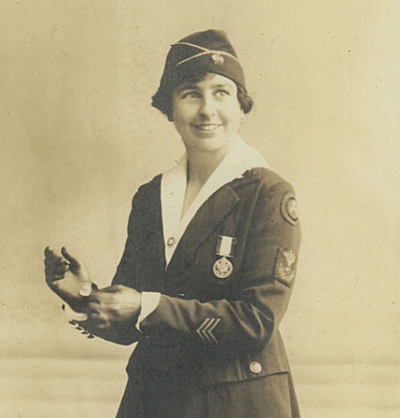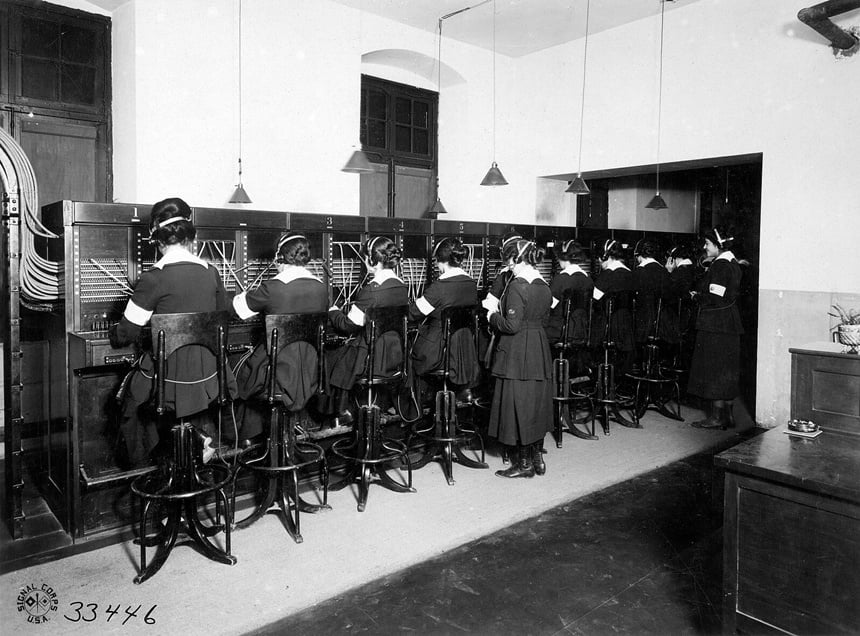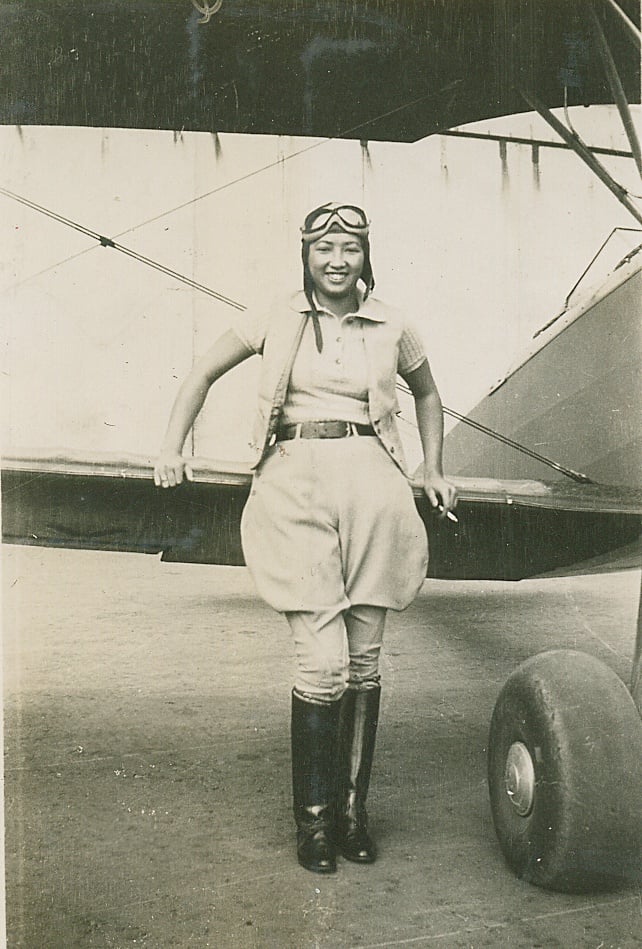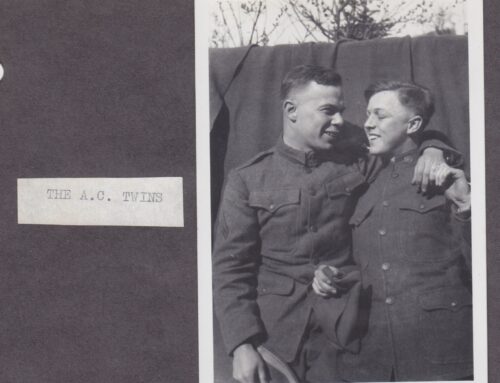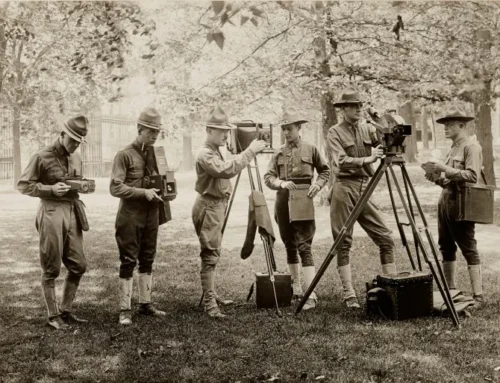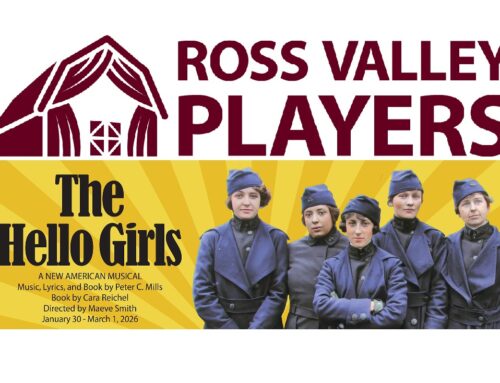Women’s Work: Honoring All Who Served, from the Hello Girls to Today’s Women Veterans
Published: 11 November 2025
By Tanya Roth
via The Saturday Evening Post website
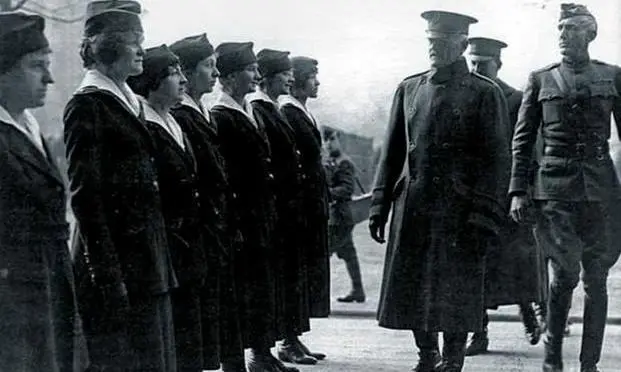
050-Pershing
Gen. John Pershing reviews the Hello Girls in France. Pershing needed skilled telephone operators and called for the Army to recruit the women despite strong objections from within the military. (Department of Defense)
Generations of American women have shown what it means to serve their country.
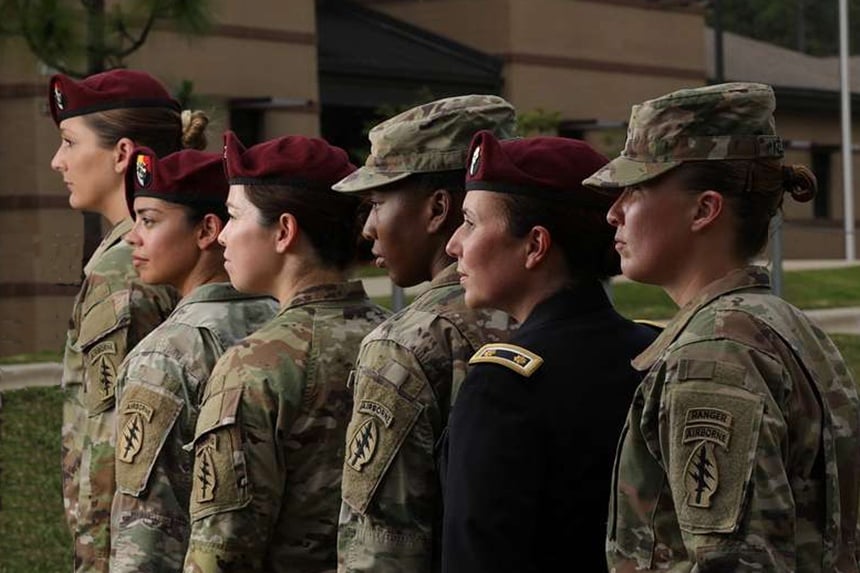
3rd Special Forces Group (Airborne) paying tribute to female soldiers, 2020 (U.S. Army photo by Sgt. Alexis Washburn-Jasinski, Picryl)
In 1919, the United States Army awarded Grace Banker a Distinguished Service Medal. According to the medal citation, Grace “served with exceptional ability as chief operator in the Signal Corps exchange at General Headquarters, American Expeditionary Forces, and later in a similar capacity at 1st Army Headquarters. By untiring devotion to her exacting duties under trying conditions she did much to assure the success of the telephone service during the operations of the 1st Army…”
Grace Banker was one of 18 “Hello Girls” who received the Distinguished Service Medal for her work from 1917 to 1920. Despite this honor, neither the United States government nor the Army considered Banker a veteran of World War I. The same was true for the other 232 “Hello Girls,” the bilingual telephone operators supporting the American Expeditionary Forces in France. Instead, they were “civilian contractors,” meaning that none of them were eligible for veteran benefits when they returned home.
Banker wasn’t the only woman denied veteran status. During World War II, Hazel Ying Lee was one of two Chinese American pilots selected to join the Women Airforce Service Pilots (WASP). According to historian Sarah Parry Myers, more than 1,100 women pilots joined the WASP during the war, ferrying planes to military installations across the country. These included planes that had been recently repaired, and those that were en route to be repaired. Other WASP duties included towing targets for male cadets to practice shooting. Lee was selected as one of just 134 WASPs to attend Pursuit School training, which made it possible for her to fly some of the most powerful fighter planes the United States had in their air fleet.
On November 23, 1944, Lee was flying one of those fighter planes, the Bell P-63 Kingcobra fighter, to Great Falls, Montana. As she was arriving, confusion over a series of landing aircraft led to a collision between her plane and another. Lee died from the injuries she sustained in the crash. But as a WASP, Lee was a civilian pilot, not a soldier. There were no military benefits for her burial or to pay to ship her body home to her parents. Her family bore the costs, then fought the local cemetery when it refused to allow her burial there because she was of Chinese descent. The Lee family finally gained permission to bury Hazel there, as well as her brother, who died just days after his sister while serving in France.
Grace Banker and Hazel Ying Lee represent just two of the thousands of American women who served their country without ever being recognized as servicemembers or veterans in their lifetime.
During the 20th century, the question of who was a veteran and what that status meant became increasingly important for two key reasons: The armed forces grew larger than ever, and the government began providing broader support to veterans.
Today, being recognized as a veteran is about more than honor: It carries tangible benefits that affect daily life. According to the Veterans Administration website, veterans are eligible for healthcare and many more benefits, including educational assistance, home loan programs, preferential hiring for government jobs, and healthcare. Such benefits acknowledge the sacrifices veterans made during service, but they also illustrate why recognition matters. Without the formal status of “veteran,” individuals who served their country can be excluded from the support they have earned.
For many women who served, it took years and sometimes decades to begin to access such support. In 1977, the G.I. Bill Improvement Act took the first step in recognizing Grace Banker, Hazel Ying Lee, their colleagues, and many others as veterans.
⇒ Read the entire article on The Saturday Evening Post website.
External Web Site Notice: This page contains information directly presented from an external source. The terms and conditions of this page may not be the same as those of this website. Click here to read the full disclaimer notice for external web sites. Thank you.
